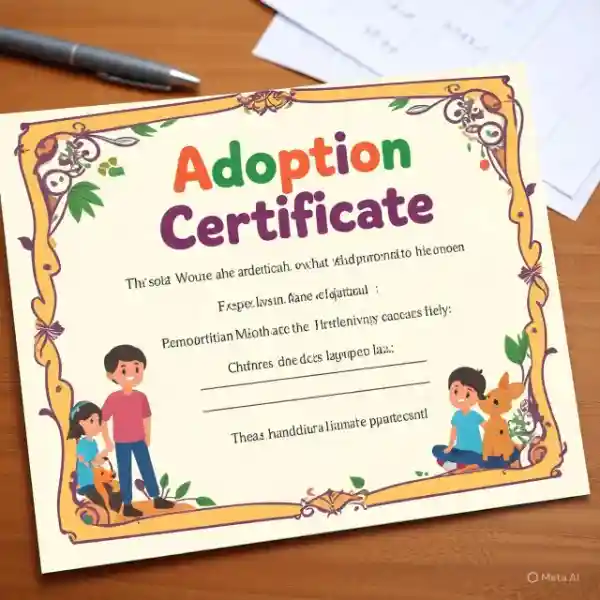Adoption Tax Credit: 10 Things You Must Know Now

If you have been hearing about adoption tax and wondering what it means, who is qualified for it, and how to get your hands on it, then this post is for you. It can be overwhelming to navigate all the adoption costs alone; however, you will have significant relief with an adoption tax credit.
At least, by laying your hands on these federal tax benefits as eligible adoptive parents, your adoption journey is sure to be a very sweet one. Granted, I am here to help you understand everything necessary about this great government benefit, including how the adoption credit works, and I will let you know who is qualified for the adoption tax credit.
In this post, I will be answering most of your questions about this government credit and how you can confidentially claim yours on your tax return so you can focus on what matters most to you. If this is what you want to learn, then let’s dive in.
What Is The Adoption Tax Credit?
The adoption tax credit is a US-designed federal benefit that is designed to aid adoptive parents in navigating high adoption costs. The maximum adoption credit is up to $15.950 per child, and it is non-refundable.
Getting this non-refundable credit will help you greatly to cover some qualified expenses, including court costs, adoption fees, and attorney charges. The great thing is that it will reduce your tax liability and provide immense financial relief for you in your adoption journey.
Note that there is an income limit attached to the adoption tax credit. This simply means that the tax credit will be reduced as your income increases. For example, if you are getting an income of $239,230, your tax credit may be less, and you may not get any credit at all.
However, if you are eligible for the credit, it will help you by lowering the amount of tax you owe, which also beats your adoption costs down to the nearest minimum. Isn’t that what you want?
Are You Qualified For This Adoption Tax Credit? Let’s check.
As I said earlier, this adoption tax credit is an initiative from the US government, so the number one criterion for getting it is that you must be a citizen of the US and a taxpayer. Secondly, you must be going through the adoption process and have incurred qualified adoption expenses, like adoption agency costs, adoption fees, and court and legal fees.
You can assess this adoption tax credit whether you are going for domestic adoption or international adoption and whether the adoption is finalized or not. You may be eligible to get a full adoption credit if you adopt a child with special needs, but remember that income limits apply.
Now you have to know whether you are eligible for adoption tax credit or not. This will help you to plan your finances and also take advantage of these great government benefits to make your adoption journey easy.
How Much Is The Tax Credit For Adoption?
If you are eligible for the adoption tax credit, then expect to get up to $15,950 per child. This is good, isn’t it? As I said earlier, getting this non-refundable tax credit will help you cover some adoption expenses like legal fees, travel expenses, and other fees.
Also, note that if your tax liability is less than the credit amount, then the portion of the credit you didn’t use will be carried forward for 5 years. So whether you choose interracial adoption or domestic adoption, this will be a great help for you to grow your family.
The United States government wants to use the adoption tax credit benefits to enable more willing adopting families to build their families. So, this is a great tool for you. Now, let’s look at how to assess the credit. So how do you get this adoption tax credit?
Best Practices to Get Tax Credit:

Of course! Below are the detailed steps involved in getting an adoption tax credit:
1. Eligibility check claims under the Adoption Tax:
Credit can only be made upon satisfaction that you indeed qualify to make a claim. The credit shall equally be allowed to adoptive parents who have incurred qualified adoption expenses in adopting a child under the age of 18 or of an adult who is physically or mentally unable to look after themselves.
Qualified adoption expenses include but are not limited to adoption fees, court costs, attorney fees, and travel expenses. International adoptions must be finalized before this credit can be taken.
Domestic adoptions can be claimed, even if the adoption is not final, as long as qualifying expenses are paid. The adoption of a child from a spouse does not qualify for this credit.
2. Consider the Maximum Credit Available:
The Adoption Tax Credit is subject to a monetary cap that is adjusted annually for inflation. For the 2023 tax year, this will provide a maximum credit of $15,950 for each qualifying child.
It is considered nonrefundable in the sense that it brings down your liability to zero, but you do not receive an amount in excess as a refund. Any excess credit not used is allowed to be carried forward up to five succeeding taxable years.
Knowing this helps you plan on the adoption expenses and tax filings to maximize benefits from the credit.
3. Track and document qualified expenses:
Wherever a claim is made, all the qualified adoption expenses must be documented in written form. It will also comprise all receipts, invoices, and other documents relevant to the process of adoption.
Allowable expenses generally include agency fees for the legal adoption of a child, legal fees, court costs, and costs of travel related to the adoption, among others. Keep these records together and available, as this may be required when filing your return or if the IRS audits you.
4. Complete the Adoption Process:
Among the important steps that follow in claiming the Adoption Tax Credit is the finalization of adoption. However, even if the adoption was not finalized, qualified expenses incurred during domestic adoption can be claimed for credit.
One must have the adoption fully completed during international adoptions, though, to be able to claim credit. All these forms of finalization documents are legal and may be asked for at the time of claiming credit.
5. Attach Form 8839 to your tax return and file
You claim the Adoption Tax Credit by filing IRS Form 8839, “Qualified Adoption Expenses,” along with your federal tax return. Use this form to list all qualified adoption expenses and figure out the total credit you can claim.
Verify that the information provided is correct and also reflects the documentation you have gathered.
Form 8839 will then walk you through how much of the credit you can take in the current tax year and what, if any amount, you can carry forward to future years.
6. Consider special needs adoption:
If you adopt a child with special needs, you may be eligible for the full Adoption Tax Credit regardless of whether you have incurred any adoption expenses.
Under this definition, a child is considered by the state as a special needs child and one that cannot or should not be returned to the home of the parents having the specific factor or conditions defined immediately above, which makes a placement with adoptive parents more difficult.
Most states require an adoption assistance agreement that must be attached to when filing for this credit.
7. Understand Income Limitations:
There may be certain income thresholds that can make the Adoption Tax Credit less valuable or ineligible to claim altogether, depending on your modified adjusted gross income. In general, the credit will begin to phase out for the tax year 2023 with modified adjusted gross income above $239,230 and is not available to taxpayers with MAGI of more than $279,230.
Income within this bracket will phase out the credit you can claim. These are important limits to income so that you can better estimate how much credit you actually will qualify to take.
8. Carry Forward Unused Credit:
Because the adoption tax credit is non-refundable, in that your tax liability is less than your qualified credit, you may carry unused credit to the following year. You are allowed to carry over any unused credit for five years, applying it against tax liability in future years.
This will be especially helpful if your tax liability varies from year to year since that might enable you to capture the most value of the credit over a long period.
9. Claim state adoption tax benefits:
Some states provide an adoption tax credit or benefit. These vary by state and can add up to your tax savings total. It pays to learn your state’s own rules and benefits for adoption since many states offer additional monetary relief that supplements the federal credit.
Some states would even offer a refundable credit—which, yes, you might be able to get refunded even though you have no tax liability.
10. Talk to a Tax Professional:
The Adoption Tax Credit is very complicated with all the rules, limits, and documentation involved. It’s best to contact a tax professional who specializes in issues associated with adoption taxes to ensure the credit is properly claimed for maximum savings.
A tax professional will be able to outline just how the credit impacts your general overall situation regarding taxation and potential state tax benefits you may be entitled to regarding adoption.
11. File your taxes early:
It’s to your advantage to file early so that you may claim the adoption tax credit as early as possible. You can get any possible tax benefit early and have some time to attend to any issues or requests for additional information from the IRS.
Another good reason to file early is that you will not be subjected to the last-minute rush that may make you compromise the accuracy and completeness of your tax return—a very cardinal issue, considering the level of complexity in claiming the adoption credit.
Conclusion:
These steps I listed in this post will take you through the process of claiming the Adoption Tax Credit and thus ensure you maximize your financial benefits as an adoptive parent. Be sure you learn and understand the steps before taking your first step to avoid mistakes.
I am still your in-house adoption counselor, Murphyaik.
See you at the top.



